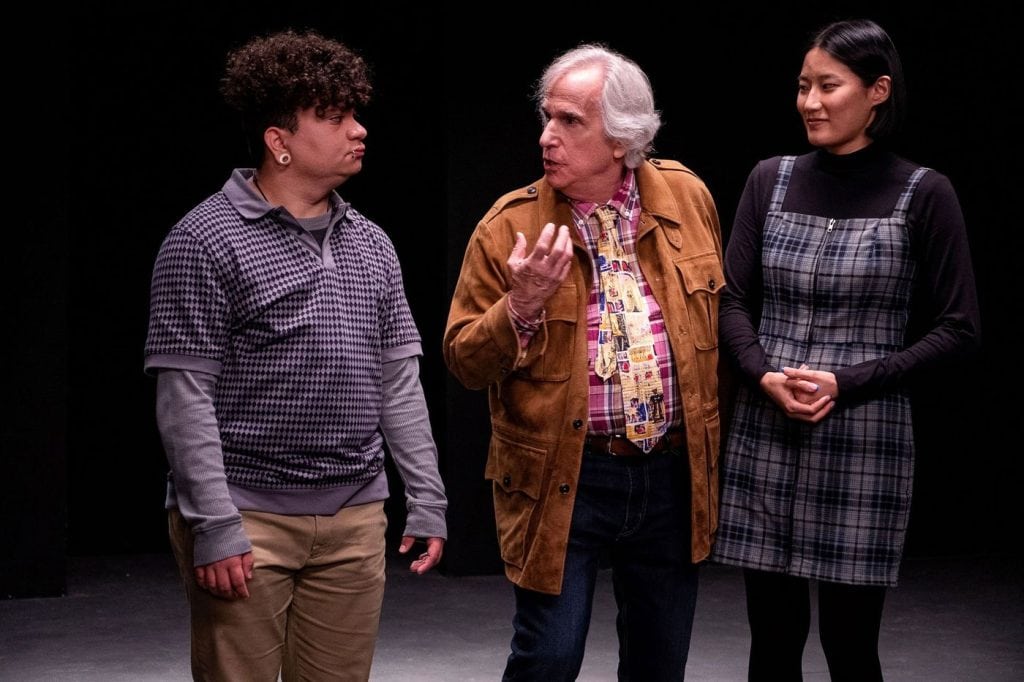Barry Season 3, Episode 6 Recap & Review: Death Becomes Him
Title: “710N”
Air date: May 29, 2022
The short of it: The season’s penultimate episode delivers brilliant stretches, but suffers a touch under the weight of lining up finale stakes.
Barry season 3, in large part, has been defined by a sprawling cast facing separate crises that only occasionally intertwine. Personal and professional issues push Sally, Gene, Fuches, Hank, and Barry all over L.A., and in a couple of cases, the world. There are the central moments between Sally and Barry, or Gene and Barry, but apart from brief interactions, screen time has played out as relatively siloed. Yes, each individual arc features tangled stakes (IE Fuches vengeance quest), but structurally, this season has had to manage a distanced web of narratives. For the most part, the creative team has done so splendidly since a slightly overstuffed premiere. It’s in “candy asses,” the season’s penultimate episode, that the story necessities appeared strained to establish stakes and compounded crises for every major player before the finale.

The biggest question coming into “candy asses” was Barry’s fate. After Sharon poisoned him in the last episode’s closing moments, we were left to wonder (if not too hard) about what came next. The answer is that Barry wakes up in a seemingly purgatorial dream world. He gasps and shoots up in the dining room before walking out onto the street only to find that instead of giving way to the rest of the neighborhood it is overtaken by the ocean and a cold, gray, beach. Barry walks wordlessly along, Bill Hader flawlessly emoting a combination of fear and curiosity. It is a stylistic swing, unlike anything Barry has undertaken before. The closest mark would be Barry’s daydreams about marrying Sally and being a father, but those never reached this surreal minimalism. Here, Hader’s direction is far more reminiscent of the opening beach in 8 ½.
In a brilliant choice, “candy asses” never swerves into an exposition dump about whether Barry is actually witnessing purgatory, or simply experiencing a poison-induced fever dream. The only context clue is a man in the ‘real’ world finding Barry slumped against a dumpster and driving him to the hospital only to sit in the parking lot holding a pistol. All the same, Barry ends up finding a group of people on the beach who are made up of those he has killed, including Chris and long-dead Chechnian mob boss Goran Pazar (Glenn Fleshler). No one recognizes Barry, but he sure understands what this collective represents. Simultaneously, the man in the real world keeping Barry in his car turns out to be Ryan’s (Tyler Jacob Moore) father, another vengeful spirit loosed by Fuches. Yet, he ends up shooting himself, an action that finally leads to Barry getting medical attention.

I absolutely adored everything about the Barry on purgatory beach storyline, and it is nonetheless because of it that “candy asses” fell rather flat for me. The last time Barry committed whole cloth to a drastic shift in narrative approach, we ended up with the possibly series-best episode “ronny/lily.” A standalone tour-de-force of pitch-dark humor, “ronny/lily” centers on Barry and Fuches in a manner that delivers a laugh-a-minute while also examining their fractured relationship. It strikes me that this season would have benefitted from treating this storyline as a standalone departure like “ronny/lily” instead of chopping it up to fit amidst a breakneck assemblage of twists that contort the rest of the cast into precarious positions before the finale. Each other story has more than enough meat to fill in the space from Barry’s and split the proceedings into two episodes.
The plotlines in question shake out as follows. Gene stages his masterclass episode, oscillating between showboating and working to atone to Annie for his past behavior. Sally slogs through the Medusa writing room before discovering Natalie has ascended to showrunner, and responds to that knowledge by locking Natalie in an elevator and screaming obscenities at her. Hank flies to Colombia to track down Cristobal, only to end up chained to a radiator talking to his fellow Chechnian mobsters through a cement wall. And finally, Fuches’ plan to seek out Jim Moss (Robert Wisdom) results in his delivery to the police, and a searing confrontation with Albert about, believe it or not, the actual truth of his relationship with Barry. Each of these features, as we’ve come to expect, top-notch acting from the series regulars and guest spots alike. Nonetheless, there is a whiplash churning through them all.

From each of these, there are two sequences that continue to resonate in my head. The first belongs to Sarah Golderb. It comes when she unloads on her agent Lindsay in the aftermath of posting a hair-brained apology video concerning Natalie’s leaked footage of their confrontation. Goldberg unleashes a weaponized stream of her self-doubt, fear, and compounded betrayals. Hader frames this moment so that Sally walks backward from a table, through the living room, into a Halloween-esque open, murky, black, doorway. It is a striking literalization of Sally’s increasing isolation. However, the moment could have landed even harder if there had been more breathing room between Sally’s perceived betrayal, her anger at Natalie, and this final outburst. The rapidity with which “candy asses” moves through Sally’s increasing fury leaves out interstitial moments that we need to marinate in this shift for Sally.
The second sequence is series-best work from Stephen Root. Fuches’ storyline suffers the least from the overstuffed episode simply because there is less density at hand. It is a variation on his previous attempts at turning mourners into murderers, and he’s not a new face for the cops so it’s simple to latch on and walk through. What’s new is Albert turning off the cameras and interrogating Fuches about what’s really going on. Within there is a moment that proves again that Root is among the best character actors working today. As Albert retells the story about a friend “snapping” after Albert was shot in the cheek, Fuches realizes it’s Barry’s story. Root’s face melts through a spectrum of emotions, settling onto a tired acceptance before revealing to Albert that Barry is a hitman. It is, in a word, sublime.

Altogether, “candy asses” offers an entertaining but fractured viewing experience. The writing in each story strand is impeccable, but the braid lining them up with one another is messy. Barry season three has delivered a string of remarkable television triumphs, and “candy asses” contains within it all the DNA of what makes this show one of the best on TV. So, for all my gripes with this particular episode, I will still be holding my breath to see what chaos and carnage arrive in the finale.

Devin McGrath-Conwell holds a B.A. in Film / English from Middlebury College and is currently pursuing an MFA in Screenwriting from Emerson College. His obsessions include all things horror, David Lynch, the darkest of satires, and Billy Joel. Devin’s writing has also appeared in publications such as Filmhounds Magazine, Film Cred, Horror Homeroom, and Cinema Scholars.







